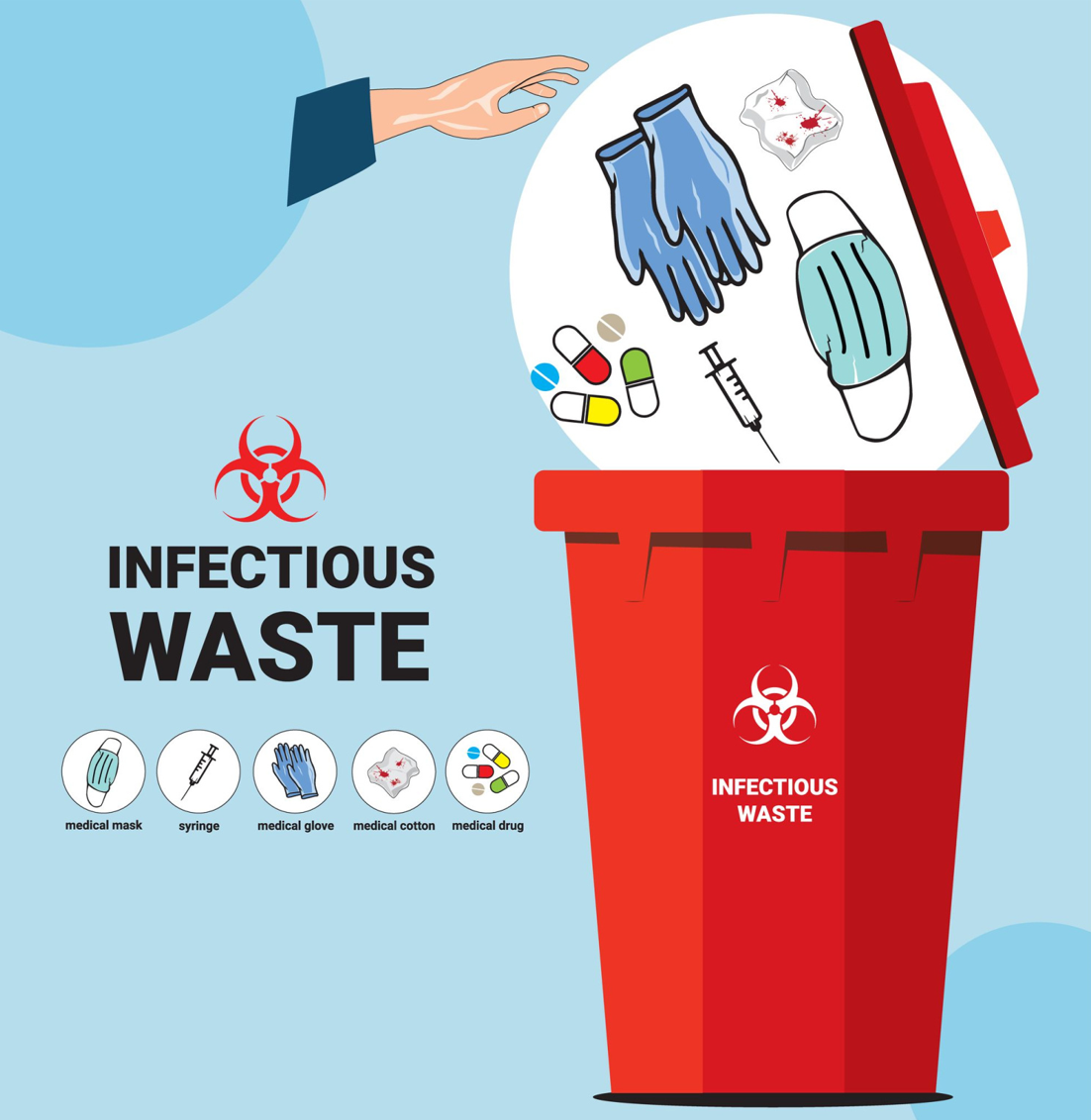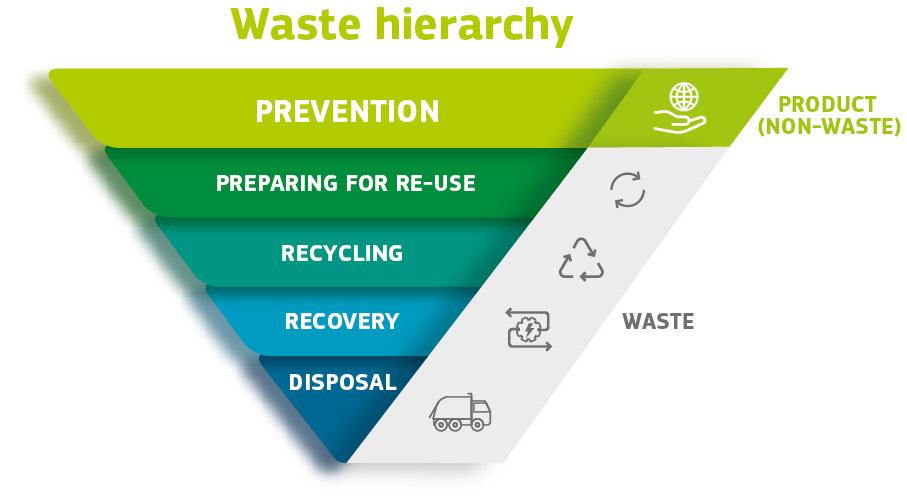Proper disposal of infectious waste is a critical aspect of healthcare operations in hospitals. It plays a vital role in safeguarding the health and well-being of healthcare workers, patients, and the general public. We cannot neglect the importance of adhering to proper disposal practices, as its consequences can be far-reaching.
Improper disposal of infectious waste can have severe environmental implications. Infectious waste that finds its way into the environment can contaminate soil, water sources, and air. This contamination can harm ecosystems, and wildlife, and eventually make its way into human populations. This can also lead to the potential for widespread health issues. You can find the Infectious Waste Management Services in Abu Dhabi and al Ain.
Explanation of Infectious Waste:
Infectious waste refers to any waste material that has the potential to harbor pathogens, which are microorganisms capable of causing disease. These pathogens can include bacteria, viruses, parasites, or fungi. Infectious waste poses a health risk if not handled and disposed of properly.

Types of Infectious Waste:
There is a variety of infectious waste. Some of them are as follows:-
- Sharps- This category includes used needles, syringes, lancets, and broken glassware contaminated with blood or other potentially infectious substances.
- Microbiological waste- Cultures, stocks, or specimens of infectious agents from laboratory work, research, or diagnostic procedures fall into this category.
- Pathological waste- Tissues, organs, body parts, and specimens removed during surgery, autopsy, or other medical procedures are considered pathological waste.
- Contaminated personal protective equipment- Disposable gloves, gowns, masks, and other protective gear used during the treatment of infectious patients are included in this type of waste.
- Blood and bodily fluids- Waste materials containing blood, plasma, serum, or other bodily fluids, including soiled dressings or bandages, are considered infectious.
- Pharmaceuticals- Expired or unused medications, including those that are cytotoxic or hazardous, fall under this category.
- Contaminated patient care items- Any materials or equipment that come into contact with infectious patients, such as contaminated linens, bedpans, or disposable medical devices, are considered infectious waste.
Legal and regulatory framework for disposal:
Local and Legal Regulations-
- Local Regulations- Each country or region typically has specific regulations and guidelines governing the disposal of infectious waste. These regulations may be set by health departments, environmental agencies, or waste management authorities.
- International Regulations- In addition to local regulations, international organizations such as the World Health Organization (WHO) provide guidelines and recommendations for the safe disposal of infectious waste.

Responsibilities of Hospitals in waste management:
-
Compliance with regulations-
Hospitals are responsible for understanding and complying with the applicable local and international regulations for the disposal of infectious waste.
-
Waste management plans-
Hospitals often need to develop and implement waste management plans that outline procedures, protocols, and responsibilities for the proper disposal of infectious waste.
-
Training and Education-
Hospitals must train staff on waste management practices and regulations, including healthcare professionals and waste management personnel.
-
Documentation and record-keeping-
Hospitals must maintain accurate records and documentation related to the collection, storage, transportation, and disposal of infectious waste. This is to demonstrate compliance with regulations and facilitate auditing and monitoring processes.
Hospital procedures for infectious waste disposal:
Collection and segregation of infectious waste-
- Segregation at the source- Hospitals implement practices to ensure that infectious waste is segregated from other types of waste at the point of generation. This may involve providing separate containers or bins specifically designated for infectious waste.
- Proper labeling- Containers or bags used for infectious waste must be clearly labeled with appropriate biohazard symbols and identification to alert individuals of potential hazards.

Packaging and labeling requirements-
- Secure packaging- Infectious waste should be placed in leak-proof and puncture-resistant containers to prevent any spills or injuries during handling and transportation.
- Double-bagging- Depending on local regulations, hospitals may require double-bagging of infectious waste to provide an additional layer of containment and minimize the risk of exposure.
- Documentation- Containers and bags should be labeled with relevant information. It includes the date, contents, and any other required details for proper tracking and identification.
Storage and transportation protocols-
- Secure storage- Infectious waste is stored in designated areas within the hospital, separate from other waste streams, to prevent cross-contamination. These areas are typically secured to restrict unauthorized access.
- Timely removal- Hospitals have procedures in place to ensure that infectious waste is collected and transported for disposal on a regular basis. This minimizes the accumulation of waste.
- Transportation safety- Hospitals follow safety protocols when transporting infectious waste off-site, including using suitable vehicles, securing containers, and complying with transportation regulations.
Hence, hospitals implement these procedures and protocols to ensure the safe and effective disposal of infectious waste. They help minimize the risk of infection, protect healthcare workers and the public, and comply with regulatory requirements. Hospitals prioritize the proper handling, packaging, labeling, storage, and transportation of infectious waste to maintain a safe and hygienic environment. If you need, you can also get the Chemical Waste Management Services in Abu Dhabi.
Treatment methods for infectious waste:
Incineration-
- Incineration involves the high-temperature combustion of infectious waste in specialized incinerators. This process destroys pathogens and reduces waste volume.
- Incinerators must meet strict environmental regulations to minimize emissions and ensure safe disposal.
- Incineration is effective for a wide range of infectious waste types, including sharps, laboratory waste, and pathological waste.
Autoclaving-
- Autoclaving, also known as steam sterilization, uses high-pressure steam to kill pathogens in infectious waste.
- The autoclave chamber places the waste and subjects it to heat and pressure, effectively sterilizing it.
- Autoclaving is suitable for items such as laboratory waste, contaminated personal protective equipment, and certain medical supplies.
Chemical disinfection-
- Chemical disinfection involves using chemical agents, such as chlorine or peroxide-based solutions, to deactivate pathogens in infectious waste.
- This method is in use to treat liquid waste or surfaces contaminated with infectious materials.
- Chemical disinfection may require specific time and concentration parameters to ensure effective pathogen inactivation.
Alternative treatment technologies-
- Microwave disinfection: This technology uses microwaves to heat and destroy pathogens in infectious waste. It can be effective for certain types of waste, but careful monitoring is necessary to ensure consistent results.
- Biological treatment: Some innovative approaches utilize biological processes, such as microbial digestion or composting, to treat infectious waste. These methods can break down organic matter and reduce pathogens.
- Emerging technologies: Ongoing research and development are exploring new treatment technologies, such as plasma gasification or thermal hydrolysis. It is for the safer and more efficient disposal of infectious waste.
Therefore, hospitals evaluate and choose treatment methods based on factors such as waste volume, waste types, regulatory requirements, and environmental impact. The selected treatment method ensures the destruction or deactivation of pathogens. This reduces the potential risks associated with infectious waste. Proper treatment is crucial for effective waste management, protecting public health, and preventing the spread of infections.
Wrapping it up:
Proper disposal of infectious waste in hospitals safeguards healthcare workers, patients, and the community from potential health risks. Improper handling and disposal of infectious waste can lead to the spread of infections, endangering individuals and public health. Hospitals employ specific procedures for disposing of infectious waste.
Cleanco Waste Treatment (CWT) is offering infectious waste management services. We are one of the largest providers of waste treatment solutions in the region. We use leading-edge technology and adopt best practices in all our operations.
















